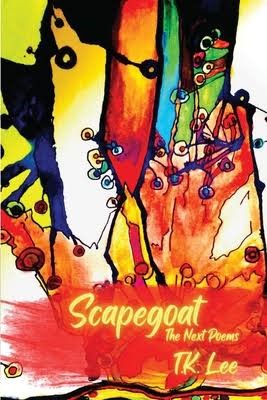Lee one of five MIAL Award nominees with ties to The W
Thomas K. Lee wants you to take a chance.

It doesn’t matter if it is the second, third or 40th opportunity because Lee believes it’s crucial that everyone listens to the voice in their head and takes a chance.
That message is at the heart of Lee’s latest collection of poetry “Scapegoat,” which was published in September 2022, and recently earned him a Mississippi Institute of Arts and Letters (MIAL) Award nomination.
Lee, an assistant professor of English / creative writing at Mississippi University for Women who writes under the shorter name of T.K. Lee, is one of four individuals with ties to The W who were nominated. C.T. Salazar also was nominated in the Poetry category for his collection “Headless John the Baptist Hitchhiking.” Ian Childers (“Pots for Simon,” Visual Arts), Valentin Bogdan (“3 Songs on the Poetry of Michai Eminescu,” Music Composition, Classical) and Joe L. Alexander (“DJ2 Extravaganza” and “The Ruffner Mountain Express,” Music Composition, Classical) also were nominated.
The winners will be announced June 3 at the 44th Annual Awards Gala in Oxford.
This is Lee’s second nomination in four years. He received his initial nomination for his first collection of poetry, “To Square a Circle.” He joked that if the third time is the charm, then he needs to get to work on his third collection.
“But I do understand better now how much an honor it is to be nominated: Realizing someone else found enough merit in your work that they, of their own volition, put your name forth to be considered means they already see you as having those winning qualities, as it were,” Lee said. “That’s truly a humbling realization.”
“Scapegoat” features the unnamed narrator Lee introduced in his first collection in more intimate moments of vulnerability: Having Love and Having Loved.
He said the poetry “ebbs and flows, catching and releasing the reader along with the narrator, as he struggles to learn that to fully live, one must finally leave … whether that be a job, a home or a marriage.” Unfortunately, Lee said the narrator fails to learn each time he leaves and, like the prodigal son, “he gives in and returns to his childhood home, to wait until something becomes familiar again.” Fate is waiting for the narrator when he returns home, Lee said, “to make sure he doesn’t miss the bigger lesson: That giving in is not the same as giving up.”

Lee said the poems paint a stark picture of the Southern experience, of family and sacrifice, but he added that taken together they reveal a much higher purpose, telling a collective story of resilience, of forgiveness and of second chances, especially those we must grant ourselves.
“They weave a deeper story that speaks to the human condition,” Lee said. “‘Scapegoat’ attempts to stretch traditional forms of poetry with experimental ideas and representations in how it manipulates some poetic forms and expressions with contemporary reads on its subject matter.”
In a Jan. 30, 2023, review for “The Southern Literary Review,” Claire Matturro writes that “Scapegoat” features “intricately layered” poems that “are like looking through a kaleidoscope so that with each new viewing, something different and intriguing emerges from the words, images and structures. These poems vibrate with words that dance about on the visual page with unique placements as well convey their own meanings in a linguistic sense. Often bitingly stunning, sometimes tinged with loss, bold with conflict, but always creative, these poems have a vitality that shines.”